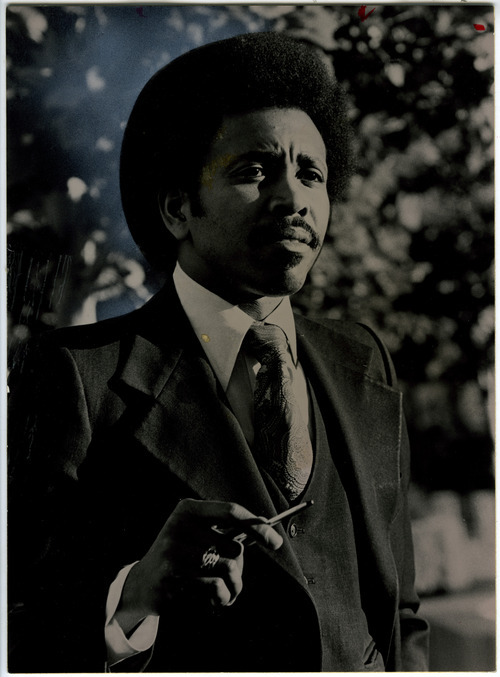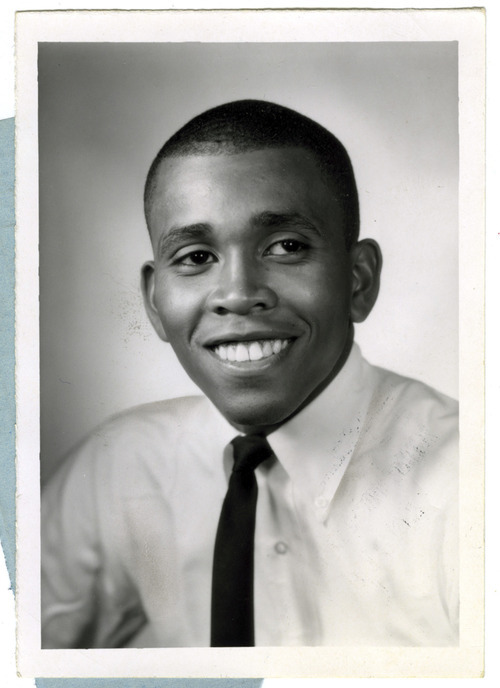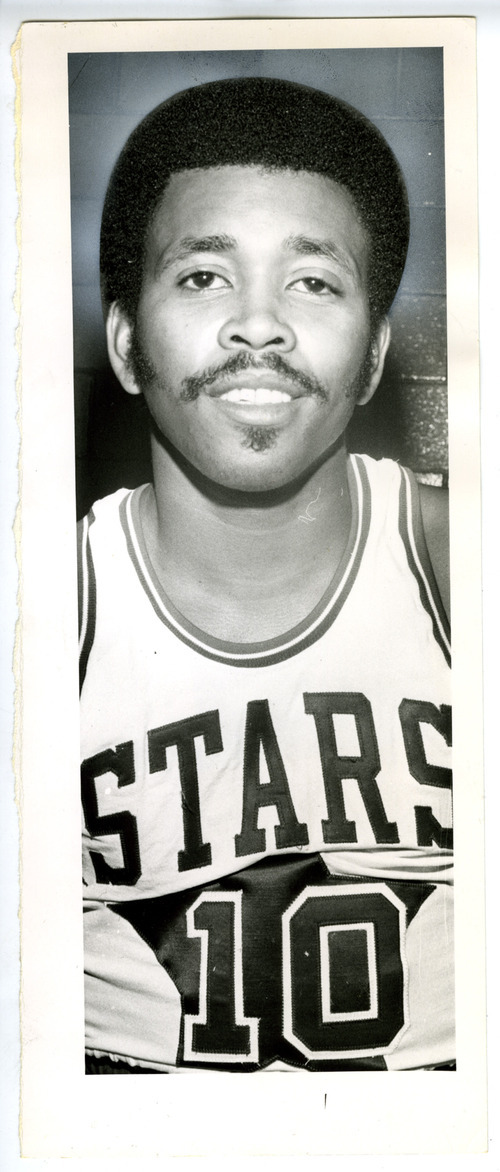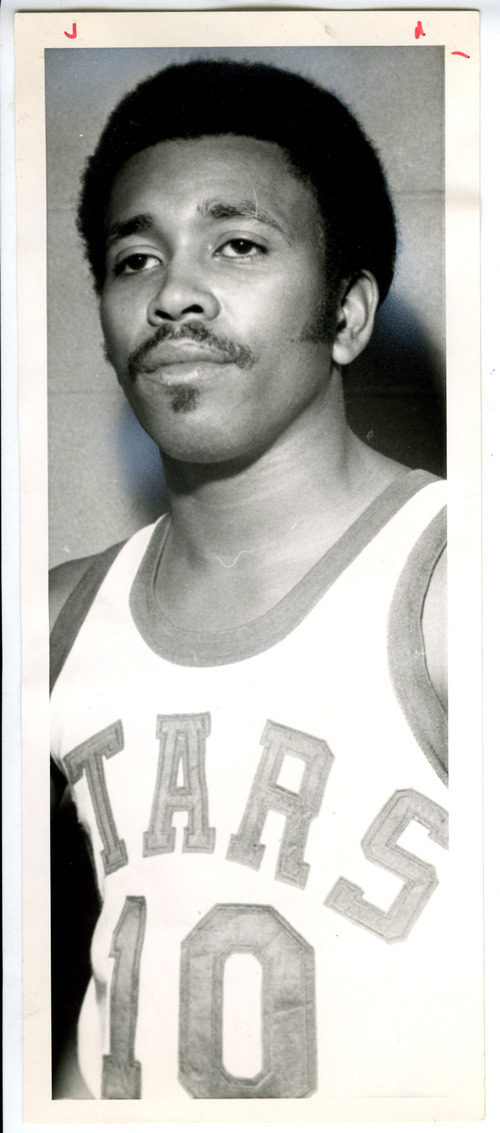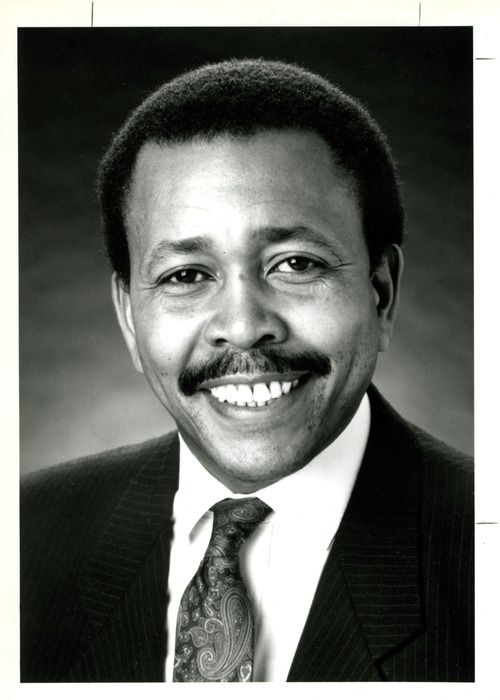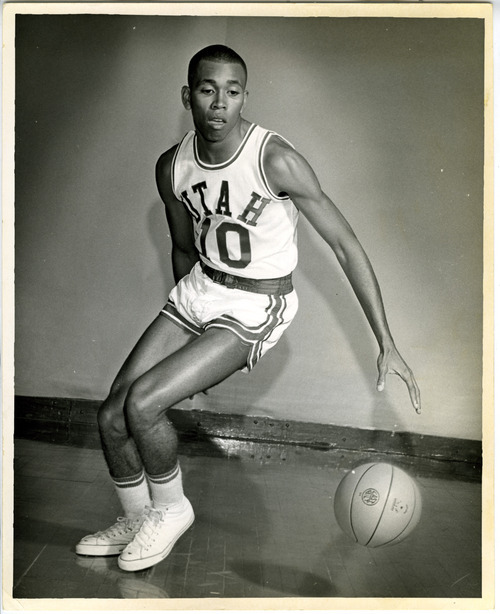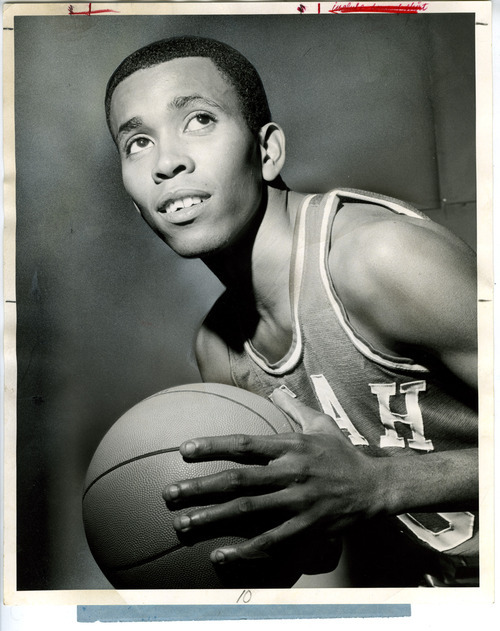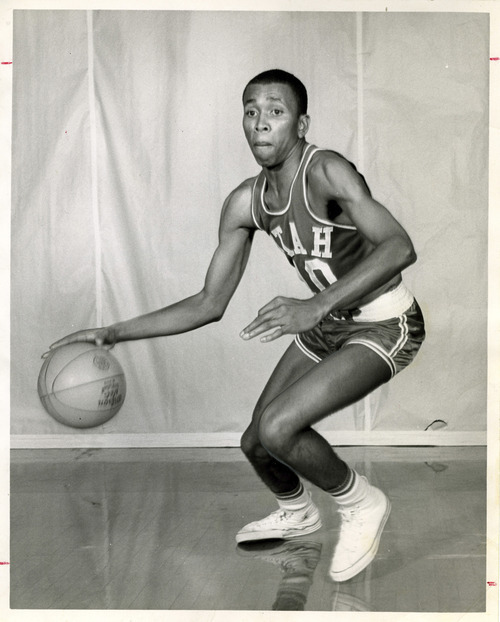This is an archived article that was published on sltrib.com in 2012, and information in the article may be outdated. It is provided only for personal research purposes and may not be reprinted.
In the end, the Magician almost disappeared.
An obituary was published in Merv Jackson's hometown newspaper three weeks after his death at age 65, defying the way information is shared instantly these days.
Eventually, his passing was duly observed by childhood friends and a few hundred other admirers in Savannah, Ga. They gathered this week at his old high school, celebrating a basketball player who made in-roads by advancing from a segregated school as a college recruit and became an All-America guard for the University of Utah and a member of the Utah Stars' 1971 ABA championship team.
His lasting impact could not go unrecorded — not in Savannah, and not in Salt Lake City. Here, he influenced all kinds of people, all those years ago: The freshman teammate whose view of African-Americans in the 1960s was enlightened by knowing Jackson. The single mother and her two children, who needed support and friendship that Jackson and others provided. The 10-year-old kid who lived and died with the Stars.
No, none of us could let the Magician go with only a brief mention.
In Savannah, friends teamed to raise money and bring him home from Chicago, so his ashes could be scattered on the graves of his mother and brother. Monday, the memories came to life and the tributes flowed easily.
"A beautiful service," said Mickey Stephens, who grew up with Jackson in the close-knit Cann Park neighborhood and helped organize the event. "It was the right thing to do, because of the bond we all shared together."
Everybody in Cann Park had a nickname. Jackson became the Magician for his exploits in basketball and baseball. His curveball "would make you bail out of the box in a hurry," said Stephens, who to this day goes by Mickey — "I don't think anybody knows my real name," he said — as a Georgia state representative.
Jackson's closest surviving relatives are two cousins in Texas. He was independent, but not reclusive. He reached out to Ron Boone and other former Stars teammates recently, joking and reminiscing in that familiar, almost whispering tone. "Every time you'd talk to him," Boone said, "it was like he was telling you a secret."
At the University of Utah — where fans somehow failed to vote him onto the school's 16-player All-Century Team in 2008 — Jackson averaged 17.6 points in three varsity seasons, ranking seventh in Ute history. He played in the historic 1966 Final Four, as the Utes lost in the semifinals to Texas Western.
Growing up in Salt Lake City, Steve Cotterell had little experience with black athletes. He just knew Bill Russell and Wilt Chamberlain were his favorite NBA players. By his actions on the freshman team, Jackson helped reinforce Cotterell's open-minded racial outlook. "He will remain one of those people who influenced my life," said Cotterell, who admires how Jackson and other Ute teammates such as Jerry Chambers thrived as minority athletes in Utah's culture of the '60s.
Sharon Day became like a sister to Jackson, who in turn became a godfather to Day's son and daughter in a group of friends including Tyrone Medley and Korla Woods. "He's always been there. Always," said Day, who now lives in Colorado. "He didn't have any pretentiousness. I know about stories where he's helped people, and he didn't want people to know about it."
Day can offer a clue as to the cause of Jackson's death. During a recent conversation, she detected symptoms of Parkinson's disease, which Jackson confirmed. His passing shocked her, however.
Same with his Stars teammates, who appreciate his contribution to that '71 championship team. Dick Nemelka remembers Game 1 of the Western Conference finals, with Jackson scoring 28 points in a win at Indiana.
Personally, I'll always think of Game 7, which followed the Stars' failed close-out opportunity in the Salt Palace. They went back to Indiana, where Jackson posted 10 points and 10 assists in a 108-101 victory.
That moment from my childhood is indelible, even more so than the championship series that followed. Merv Jackson helped make it happen, and I won't forget him.
Twitter: @tribkurt


